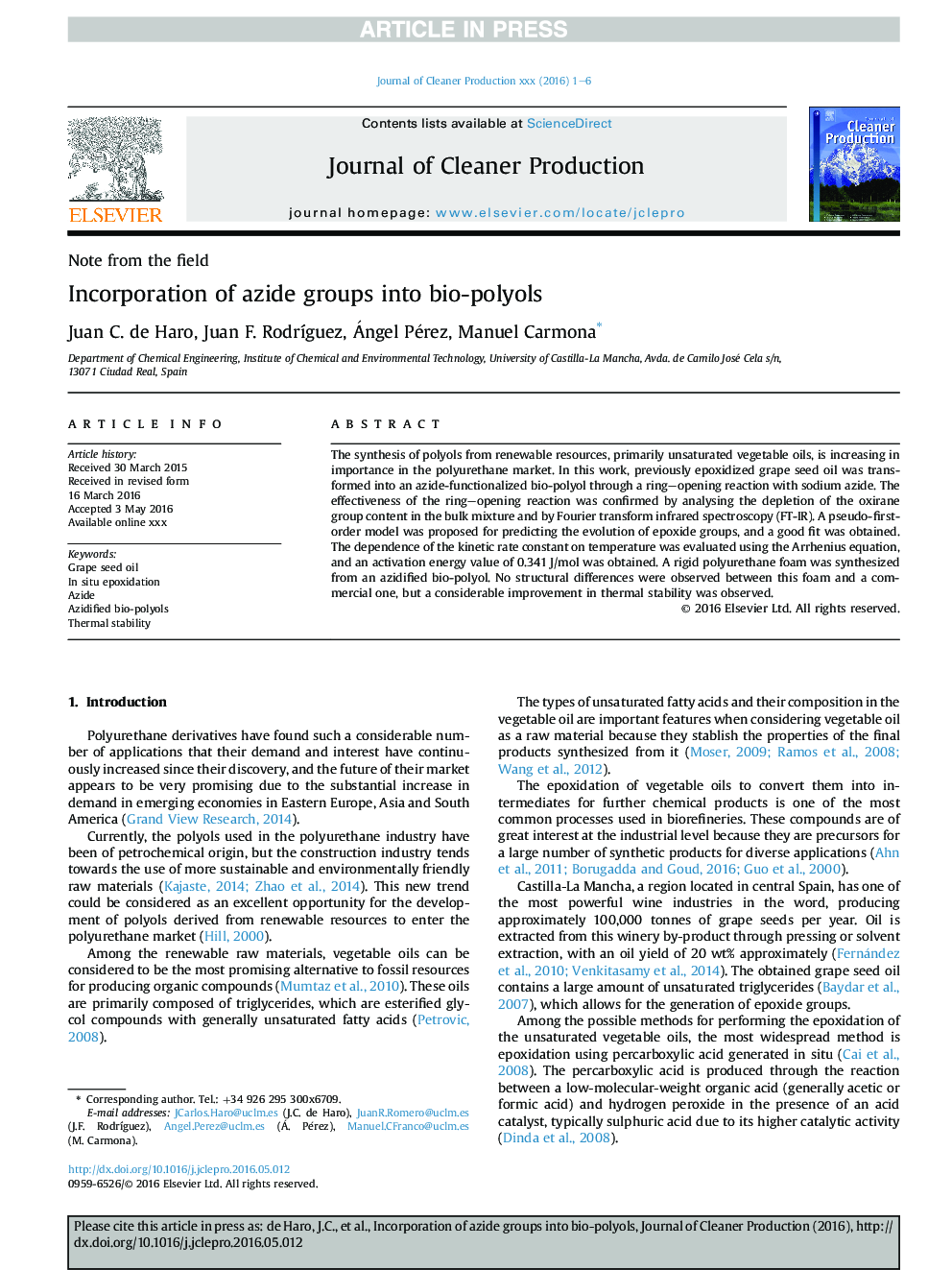| Article ID | Journal | Published Year | Pages | File Type |
|---|---|---|---|---|
| 5481585 | Journal of Cleaner Production | 2016 | 6 Pages |
Abstract
The synthesis of polyols from renewable resources, primarily unsaturated vegetable oils, is increasing in importance in the polyurethane market. In this work, previously epoxidized grape seed oil was transformed into an azide-functionalized bio-polyol through a ring-opening reaction with sodium azide. The effectiveness of the ring-opening reaction was confirmed by analysing the depletion of the oxirane group content in the bulk mixture and by Fourier transform infrared spectroscopy (FT-IR). A pseudo-first-order model was proposed for predicting the evolution of epoxide groups, and a good fit was obtained. The dependence of the kinetic rate constant on temperature was evaluated using the Arrhenius equation, and an activation energy value of 0.341Â J/mol was obtained. A rigid polyurethane foam was synthesized from an azidified bio-polyol. No structural differences were observed between this foam and a commercial one, but a considerable improvement in thermal stability was observed.
Related Topics
Physical Sciences and Engineering
Energy
Renewable Energy, Sustainability and the Environment
Authors
Juan C. de Haro, Juan F. RodrÃguez, Ángel Pérez, Manuel Carmona,
